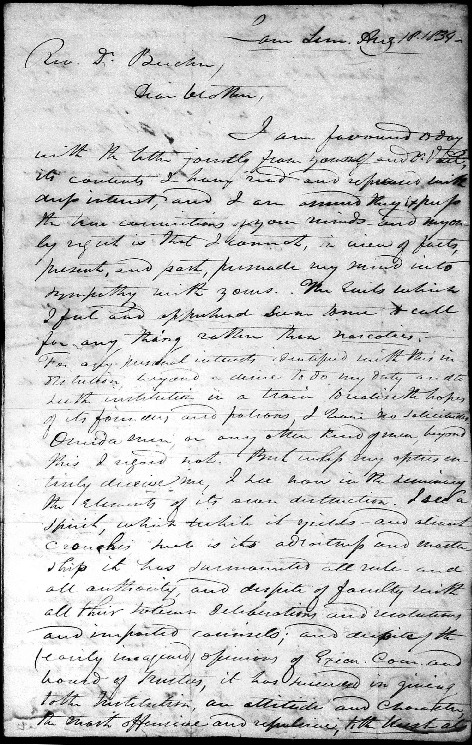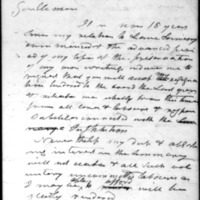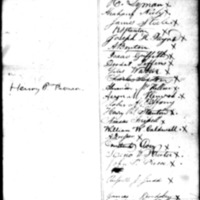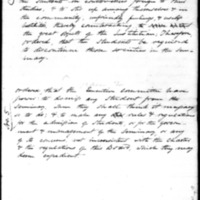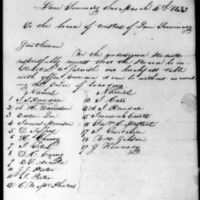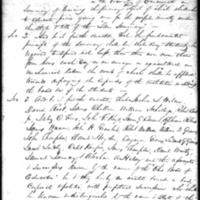The Issue of Slavery
An issue of national importance appeared which threatened to divide the newly founded seminary. Slavery was on the minds of Americans and many were now speaking out against it. Specifically, some Lane seminarians wanted to admit black men as fellow students to the seminary. Many were also labeling themselves as abolitionists. In February 1834, the students decided to hold debates on the topic of slavery and abolition. Theodore Dwight Weld, a student at the seminary who was a passionate abolitionist, created the idea of these debates. He wanted immediate emancipation, and was opposed to the idea of colonization, which would ship blacks back to Africa. During the 1830’s two societies of differing emancipation views were present on the Lane Seminary campus; Abolition and Colonization. Beecher felt there was ample work for both associations to perform and that they could and should exist side by side and support one another.
Contrary to Beecher’s ideals, Weld used these nightly debates to show that colonization was not the right thing to do. Weld became a leader among the students, and was able to encourage many of them to become abolitionists as well. Weld’s background is important to consider when understanding his path to becoming a leading abolitionist at the Lane Seminary. In these eighteen debates, the main questions asked were if slavery should be abolished immediately, and if the American Colonization Society was correct in its ideals. Essentially, these men were discussing on what to do with the black population in the United States. The two questions discussed were: “Ought the people of the Slaveholding States to abolish Slavery immediately?” and “Are the doctrines, tendencies, and measures of the American Colonization Society, and the influence of its principal supporters, such as render it worthy of the patronage of the Christian public?”. The seventeen speakers for the eighteen debates were from many different backgrounds. Some were from free states, others from the south where their own families owned slaves. One speaker, James Bradley, was a former slave who bought his own freedom. Each man participating in the debates had first-hand knowledge on the subject of slavery.
In the end, a vote was created to decide who had changed their opinions. The debates convinced those who attended that slavery was a sin, the colonization idea was wrong, and that slavery should be abolished immediately. This was viewed as radical thinking and the board of trustees was greatly disturbed by it. They demanded that the abolitionist and colonizationist societies end inferring they were interfering with the students’ studies. As a result, the students became outraged, although Reverend Lyman Beecher did his best to control and calm their anger. The Seminary board decided to go against Beecher, and ended all groups and societies currently happening at the seminary. This act upset most of the seminary’s students, so they decided to take action against it, with Weld as their leader.
